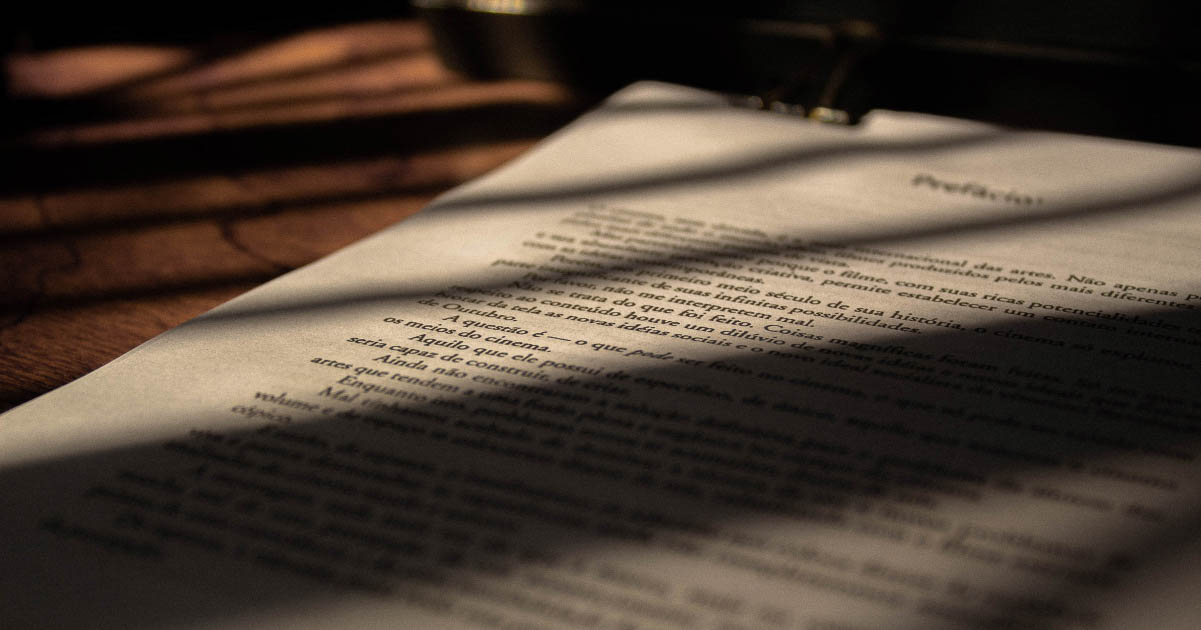
Proofreading and Editing Legal Writing
While we cover academic, creative, and business writing in the Becoming A Proofreader and Becoming An Editor courses, what about other writing types? How might proofreading and editing legal writing differ, for example? Well, there are some differences you will need to consider if you want to work with legal clients. In this post, we’ll set out the basics.
Proofreading and Editing Legal Writing
Precision is key in legal writing, so editing and proofreading are often crucial. But what is legal writing? Broadly, it refers to any writing used by legal professionals, including:
- Legal analysis – Documents designed to predict or argue for a particular legal position.
- Legal drafting – Binding documents and legal instruments such as contracts and legislative acts.
- Legal communications – Documents intended for transactional use in the legal world and writing that aims to inform non-specialists about legal issues (e.g., an explainer aimed at potential clients).
Since these documents are often very specialized, and even minor oversights or errors can have significant consequences, proofreading and editing legal writing can be difficult. In addition, law and the conventions of legal writing may vary between regions or jurisdictions. Due to the requirements of legal writing, then, most editors working in this field will have a relevant legal qualification, professional experience in the legal world, or both.
In terms of typical clients, meanwhile, most law firms employ their own legal editors, and legal publications often have in-house editors for much of the substantive work. Thus, the most common clients for freelance legal editors tend to be law students, individual legal professionals/practitioners, and legal scholars.
You may find that other clients ask you to look at legal documents as well (e.g., a business asking you to edit a contract). It is fine to take on this kind of work if you feel capable, but you should always check that the client has had the document(s) reviewed by a legal professional (and/or that they will do so after you have worked on it).
Key Features of Legal Writing
Like academic and medical writing, legal writing is typically very formal and technical, so editing legal documents will require the usual focus on clarity, concision, consistency, and precision. However, other distinctive features of legal writing that an editor may need to be aware of include:
- A focus on referencing authorities and precedents using specialized legal citation styles.
- A very specialized vocabulary, often incorporating archaic language, loanwords and Latin, technical legal terms, and terms of art (i.e., words that have a non-standard or technical meaning in a legal context).
- Specialized structures intended for use in legal writing (e.g., the IRAC format).
- Standardized document formats and types that fulfill specific purposes.
These all mean that legal writing can be difficult to follow for non-experts, and editing legal documents will often require distinguishing necessary technical language from unnecessary jargon and legalese. As such, you should always check whether an editing project will require specialist knowledge.
In some cases, you may also need to help clients adapt their writing style for different audiences (e.g., a filing for a court might be very formal; a legal memo less so, but still quite technical; and a guide aimed at the public to explain a legal issue would need to be much simpler and more accessible).
Style Guides for Legal Writing
In terms of legal style guides, the most important examples may be legal referencing guides, such as:
- The Oxford University Standard for the Citation of Legal Authorities (OSCOLA) in the UK
- The Bluebook and The ALWD Citation Manual in the USA
- The Australian Guide to Legal Citation (AGLC) in Australia
We discuss these in a little more detail in the Other Referencing Styles lesson in Becoming A Proofreader, but the key point to remember as an editor is that the correct citation style to use will usually depend on where your client is based.
For more general advice about clear, concise legal writing, helpful books include The ABA Basic Guide to Punctuation, Grammar, Workplace Productivity, and Time Management by Jayne Cracker and The Elements of Legal Style by William Strunk and E. B. White. It also pays to invest in a quality legal dictionary if you plan to work in this field. Here again, though, you may need to be careful about the dialect and region that style guides and dictionaries focus on, as advice won’t always be applicable across regions.
Keep in mind, too, that many law firms and publishers will have an in-house style, often based on AP or Chicago style (and some clients may just use The AP Stylebook or The Chicago Manual of Style). As always, then, the key point here is checking which style guides your clients use and following the instructions therein.
Legal Writing Resources
If you’d like to learn more about legal writing, there are other resources available. Useful books include:
- Legal Writing in Plain English by Bryan A Garner
- Successful Legal Writing by Edwina Higgins
- Modern Legal Drafting: A Guide to Using Clearer Language by Peter Butt
- Writing and Drafting in Legal Practice by Paul Rylance
- The Lawyer’s Essential Guide to Writing by Marie Buckley
The last of these books is supported by a very informative blog. You can also find plenty more free information online via blogs, ebooks, and similar, but make sure to be careful about information you find on the internet: websites run by law schools, legal associations, and qualified legal professionals are usually trustworthy, but even then you might need to take jurisdictional differences into account on some topics!
Some institutions also offer specific courses in legal writing. And you can even find editing software aimed at legal writers, such as American Legal Style for PerfectIt. If you are interested in focusing on legal editing, then, it is worth exploring these training opportunities and other specialized resources.
Are You Ready to Become a Freelancer?
Freelance editing and proofreading is a great option for anyone seeking a flexible, rewarding career path. And to get started, you can take the Becoming A Proofreader course to learn all of the basic skills you will need. Sign up for a free trial today to find out more.



Join the Conversation
Leave a Comment
Your email address will not be published.